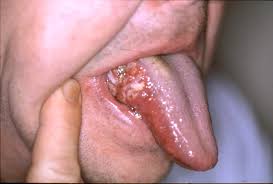A groundbreaking study has debunked the notion that sweeteners increase hunger, shedding new light on their role in dietary management and public health. Published in eBioMedicine, the research conducted by the University of Leeds and the Rhône-Alpes Research Center for Human Nutrition reveals that replacing sugar with sweeteners effectively curbs appetite and lowers blood sugar levels without adverse effects.
Contrary to previous concerns, the double-blind randomized controlled trial demonstrated that participants who consumed sweetener-infused biscuits experienced similar reductions in appetite and hormonal responses compared to those consuming sugar-laden equivalents. Notably, insulin and blood glucose levels were notably lower after consuming sweeteners, a finding with significant implications for individuals at risk of type 2 diabetes.
Lead author Catherine Gibbons highlighted the study’s relevance in combating obesity-related metabolic diseases: “Our findings provide robust evidence that integrating sweeteners into diets does not provoke heightened appetite, making them a valuable tool in reducing sugar intake without compromising taste.”
Principal investigator Graham Finlayson underscored the study’s methodological rigor and its implications for public health strategies: “The use of sweeteners has been clouded by misconceptions, but our study supports their efficacy in managing body weight and blood sugar levels.”
The trial, spanning 2021 to 2022, involved 53 adults with overweight or obesity, who consumed biscuits containing sugar, Stevia (a natural substitute), or Neotame (an artificial sweetener) across three two-week periods. Detailed assessments of appetite sensations, glucose metabolism, and hormonal responses were conducted, revealing no adverse impacts of sweeteners on appetite or metabolic health.
Professor Anne Raben, joint co-ordinator of the SWEET consortium, emphasized the study’s implications for reducing added sugar intake: “Sweeteners offer a viable strategy to manage energy intake without triggering compensatory appetite increases, supporting their role in appetite and weight management.”
This research, funded by Horizon Europe, marks a pivotal advancement in understanding the health effects of sweeteners, paving the way for informed dietary recommendations and improved public health outcomes.
Reference: “Acute and two-week effects of neotame, stevia rebaudioside M and sucrose-sweetened biscuits on postprandial appetite and endocrine response in adults with overweight/obesity—a randomised crossover trial from the SWEET consortium” by Catherine Gibbons et al., eBioMedicine, March 28, 2024.












